He is showing me his village. I see a lot of children. Today is a holiday and all schools are closed. He doesn’t find good words about the school. The kids are bad in reading and writing. He also has some problems with the government and the politicians. “Nobody is helping us. Not only the school is bad. We also have several time no electricity. Now is election time, that’s why we have electricity. But once the elections are over it will be dark here again at the night.” Only hundred meters from the house are high voltage power lines. We can hear the buzzing all the time which seems gloating during the blackouts.
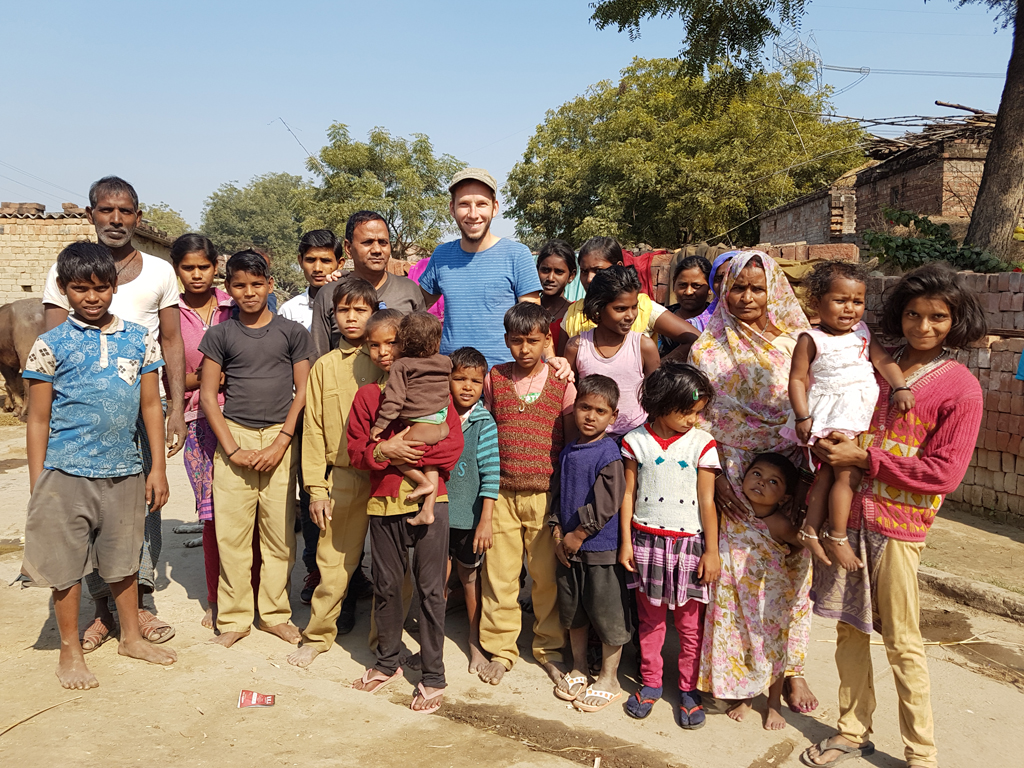
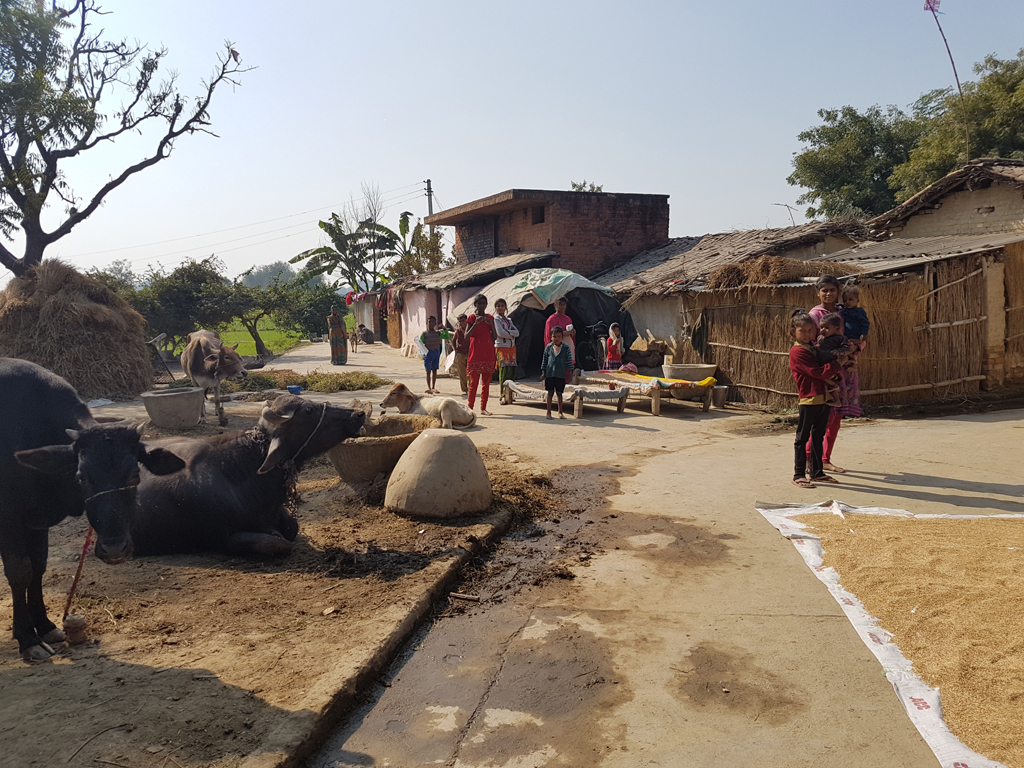
“My brother is living next door.” Explains Shyewa while he picks a Guava from the tree next to the house. We already made ourselves comfortable at the plastic chairs in front of his house. His wife brings cookies and Masala-Chai, a typical Indian spice tea. “Since we live in the city my brother takes care of our house while he lives in it. His house is now a stock house.” A man passes us carrying cut wood on his carriage. He is waving towards Shyewa and speaks for some minutes with him. “The life at the countryside is difficult. There is always something to do. Now my brother and his son are watering the fields. I am very proud of our electrical water pump. Come! I’ll show it to you.” We’re standing now together in front of a 25 meter deep spring. The softly buzzing water pump brings the water towards the daylight which is going via a leaking pipe to the fields. “The water is very good. We’re drinking it daily.” I try it as well. And I didn’t have problems.

We’re having lunch at the rooftop of the house. The wife of the brother of Shyewa is serving us rice with Dahl and Chapati. Dahl is kind of a soup with vegetables and Chapati is a type of bread. There is no cutlery because here they eat with their hands only. We put the Chapati in the Dahl and put the rest of the Dahl on the rice. There we form with the hands little balls of food ready for the mouth (of course always with the right hand). I struggle little bit with the procedure and Shyewa realizes that. His sister in law brings a spoon. At least I tried it 🙂
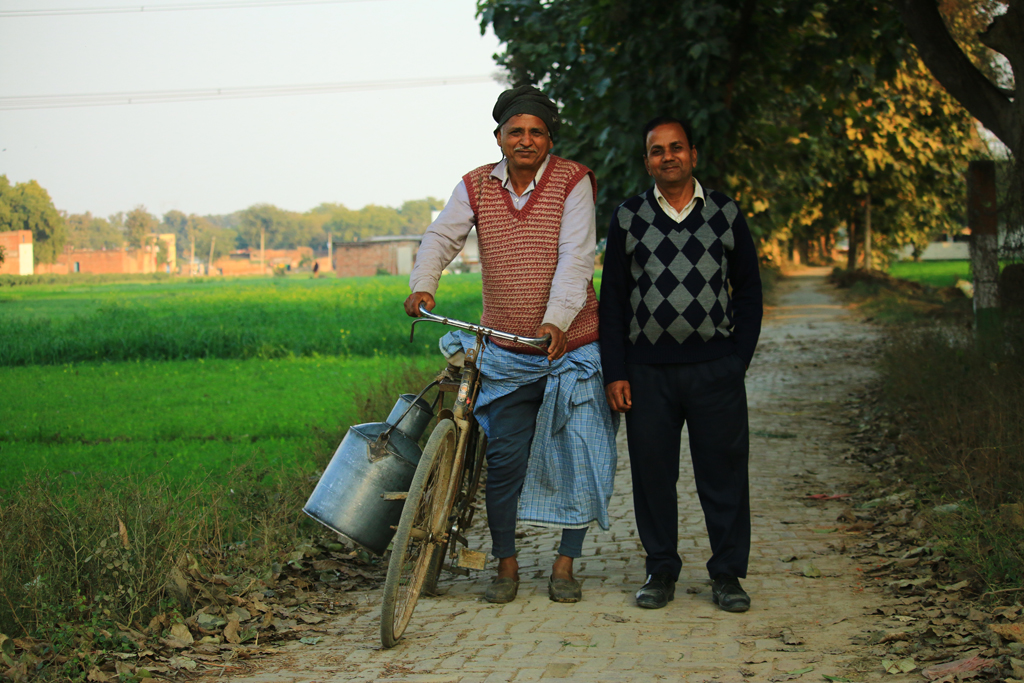
Here everything follows the same principles. The women are doing the work in the kitchen, serving the food, cleaning the table and the dishes. The men are doing the heavy work at the field, are getting the food from the women without saying thank you, burping and turning to the side for sleeping after they had food. When it’s cold enough for working they get back to work. I feel a little bit bad and would like to help. But I am the guest and I am only here to be lazy.
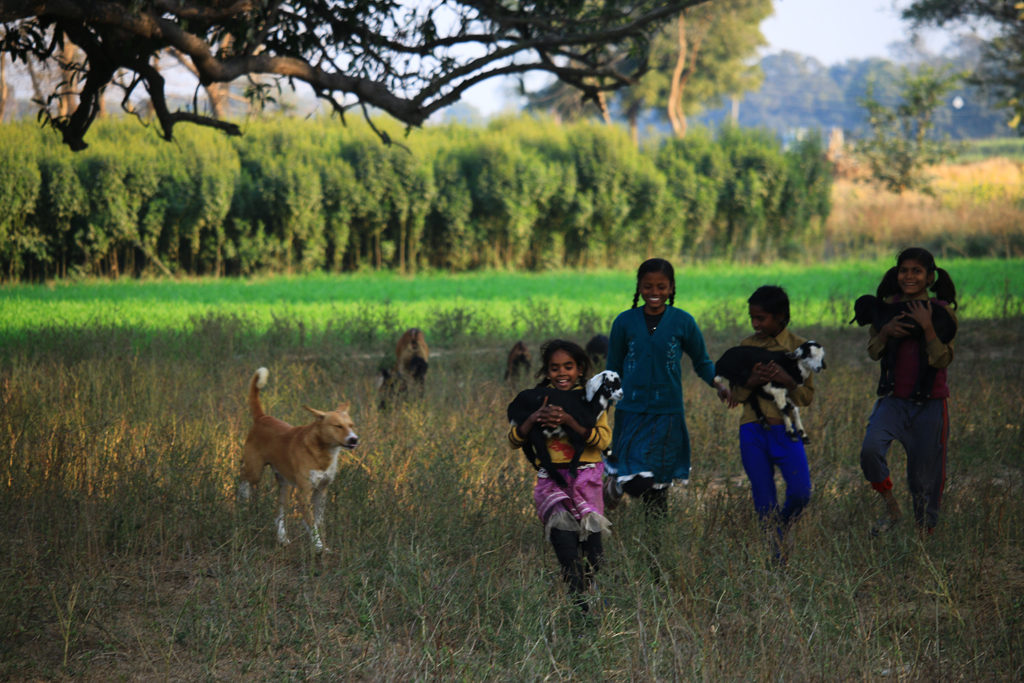
I got tired after lunch as well and fell in the sun in a deep sleep. Shyewa is sharing the bed with his mother who is already 87 years old and who is still doing the daily countryside work. After a small nap I couldn’t stand it in the sun and moved to the backseat of my car to read my book. But after some minutes the boy from the neighborhood is standing in my door and ask me to come to his house. I am not in the mood and prefer to read which is hard to understand for the 16 years old teenager. He sits almost inside the car, is touching me permanently and is keeping asking me hundreds of questions. It is something I’ve found on several teenagers. Another one kept speaking to me and when I wanted to leave he told me to stay because he wants to speak more with me. I don’t like such of things. It is taking the freedom from me to do whatever I want. So I sent the teenager out of my car while telling him that I come later to his house.
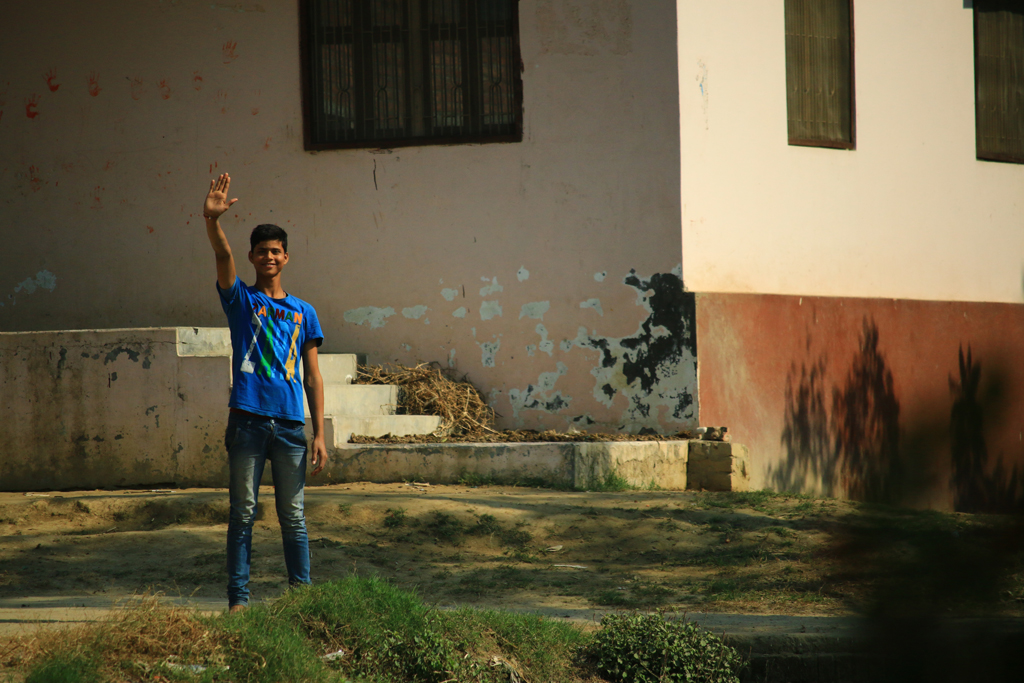

I hope that by the end of your time in India you can eat properly with your hands 😉